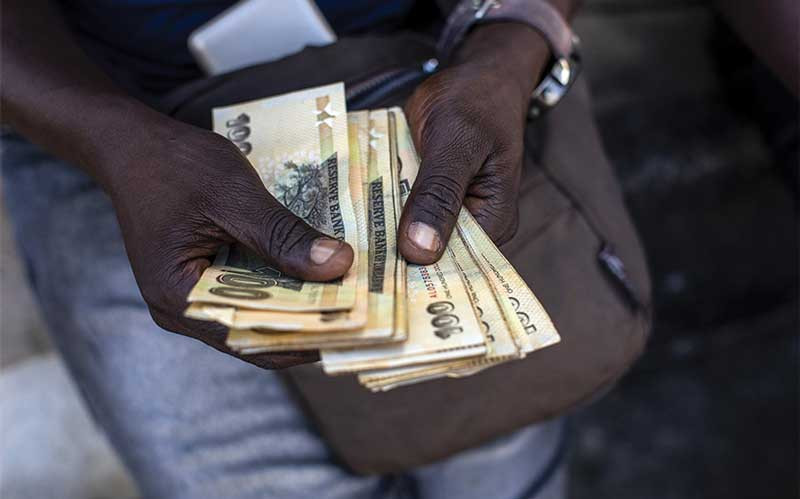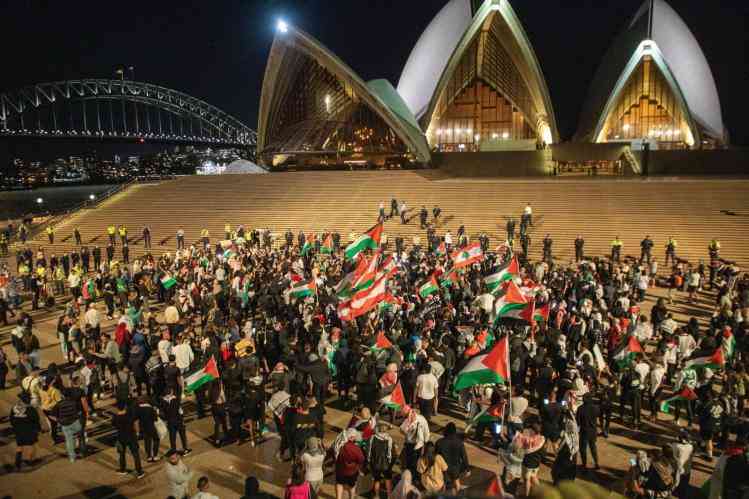
As we go to press, US financial news media has become aware of the Zimbabwe financial crisis.
Bloomberg news agency and the Financial Times have reported authoritatively on the events surrounding the loss of value of the Zee dollar.
While the above news media have maintained a scholarly attitude, Erik Prince, former US Navy Seal operative and founder of the mercenary force Blackwater, had a few words about Zimbabwe.
He names Zimbabwe by name, and says that Africans have failed to govern themselves, and are more intentional on looting and going shopping abroad.
Then there are all sorts of US Congressional reports on Zimbabwe. In addition, there are reports on the on-going Zimbabwe situation from the US State Department elder statemen who served in Southern Africa (July 30,2018).
In the meanwhile, the Zee dollar had fallen in value to Zee 43 000 per US dollar by the time new Reserve Bank of Zimbabwe governor John Mushayavanhu introduced a new currency on Friday.
This has wiped out the vale of retirement accounts. Even if the Zimbabwe government inflates average pensions to Zee 430 000 per month, the value is equal to US$10.
The consensus, which we can call the American view, is that the currency problems in Zimbabwe have everything to do with a mafia style government rather than resource poverty.
- Letter from America: The Zimbabwe currency crisis as seen from abroad!
- Zimbabwe currency crisis: Time to face the truth
- Letter from America: RBZ is the problem not ZiG!
Keep Reading
Congressional reports zero in on the present government’s association with shady businessmen, otherwise called the Golden Mafia. The reports mourn the continued association of Mukuru with his buddies from the dark past.
The mother of corruption lies in a scheme birthed by the Reserve Bank which allows privileged persons to borrow money at a fixed rate.
There is an allegation that some years ago, a famous businessman bought US$20 million bond notes at face value, sold them on the black market five times the value.
In due course, the businessman was able to buy some productive mines in Bindura.
Such a system is like the one prevalent in Russia under Boris Yeltsin (1991-1999) which resulted in a class of politically connected oligarchs.
Americans believe that such a system, not only corrupts the whole idea of a free market but impoverishes a nation while allowing a parasitic class to grow fat on interest free loans from government.
Two examples will suffice and will illustrate the gravity and basis of the sanctions against Mukhuru.
Mikhail Khodorkovsky had enriched himself on a US$300 million government loan to underwrite an oil company hoping to eventually merge with EXXON-USA. Boris Berezovsky owned a bank and 25 television stations under similar favorable conditions.
The dangers posed by these Mafia companies is all to obvious, government is both lender of first resort, player in the market, and referee as well. Competition with one of these companies is competition with government itself.
Putin sent Boris and Mikhail to Siberia, each for ten years in a jailhouse. When released, they skipped town and are hiding somewhere in Europe.
In the American view, there is a long list of Zimbabwean Russian style mafia type personalities, and companies, such as Kuvimba, Sakunda, Masimba and Wicknell Chivayo’s Solar Systems.
These companies, are mere shadows of the political apparatus, buttressed by the Reserve Bank, and spared from free market vicissitudes for business errors by both government and a captured judicial system.
In some British reports, Reserve Bank John Mangudya and Sister Gucci Grace are reported as second and third richest persons in Zimbabwe, weighing in the range of US$5 billion each.
Americans, however, de-emphasise the role played by bad white men like Billy Rutenberg, a mining conglomerate who was the brains behind the Zimbabwe Defence Forces looting in the Congo (1997-2002). Another is Simon Rudland of Gold Leaf Tobacco, whose business is alleged to be the mother of all illicit tobacco sales in South Africa.
In summary, the American view is that the Reserve Bank should be disassociated from selling (or lending) treasuries at bond rates, which are then sold on the black market at five times their original value.
In addition, Mukuru should disassociate himself from his shadow friends who externalise their profits abroad, thus depriving Zimbabwe of investment and the multiplier effect of genuine business efforts.
Then there is Ewan McMillan and his “runner” in Dubai, Howard Baker, both gold dealers and shadow characters.
In summary, the American view is that the government and the Mafia are the same. Therefore, no meaningful reforms can take place when the fox is the chief custodian of the hen house.
This line of argument supports regime change.
The African view follows a different path. Zimbabwe’s currency has undergone six different transformations since 2008, all of them caused by serious loss of value in the Zimbabwe dollar.
Surprisingly, the Zimbabwean view, as far as I can ascertain, is very similar to the American view.
Obviously, there are some brothers with access to the Reserve Bank, Sir Wicknell Chivhayo being one. These brothers, as the Honorable Sir Wicknell has proved, have plenty of cash to splash.
His tithing, at US$1 million at Zion Christin Church, is redemptive and should be commended.
Then there are thieves (Mbavha dzamakoko) who are so subtle they can steal milk from one’s tea.
Virtually everything is laid out to be stolen.
The biggest heist in broad daylight was the US$400 000 “allocated” to honorable judges just before elections.
That money is untraceable in the budget, nonrefundable and in any case, where would a complaint be lodged? I presume to the honourable judges.
This also proves that there is no shortage of resources in Zimbabwe.
Nelson Chamisa
If the Americans are correct, and I believe that they have a case, Brother Chamisa’s mission to engage government in dialogue is misplaced.
The system does not need reform. It is rotten to the core. It needs replacement.
An American news item starts with these words about Mushyavanhu — “a close ally of President Emmerson Mnangangwa, Mushayavanhu has his work cut out”.
The one missing problem from the seven Brother Mushayavahu is said to be ready to tackle is a simple one.
A member of the fox clan, Mushayavanhu must bring the inhabitants of the chicken coop into his confidence. He has my blessings.
*Ken Mufuka is a Zimbabwean patriot. He writes from the US.











